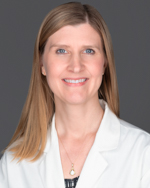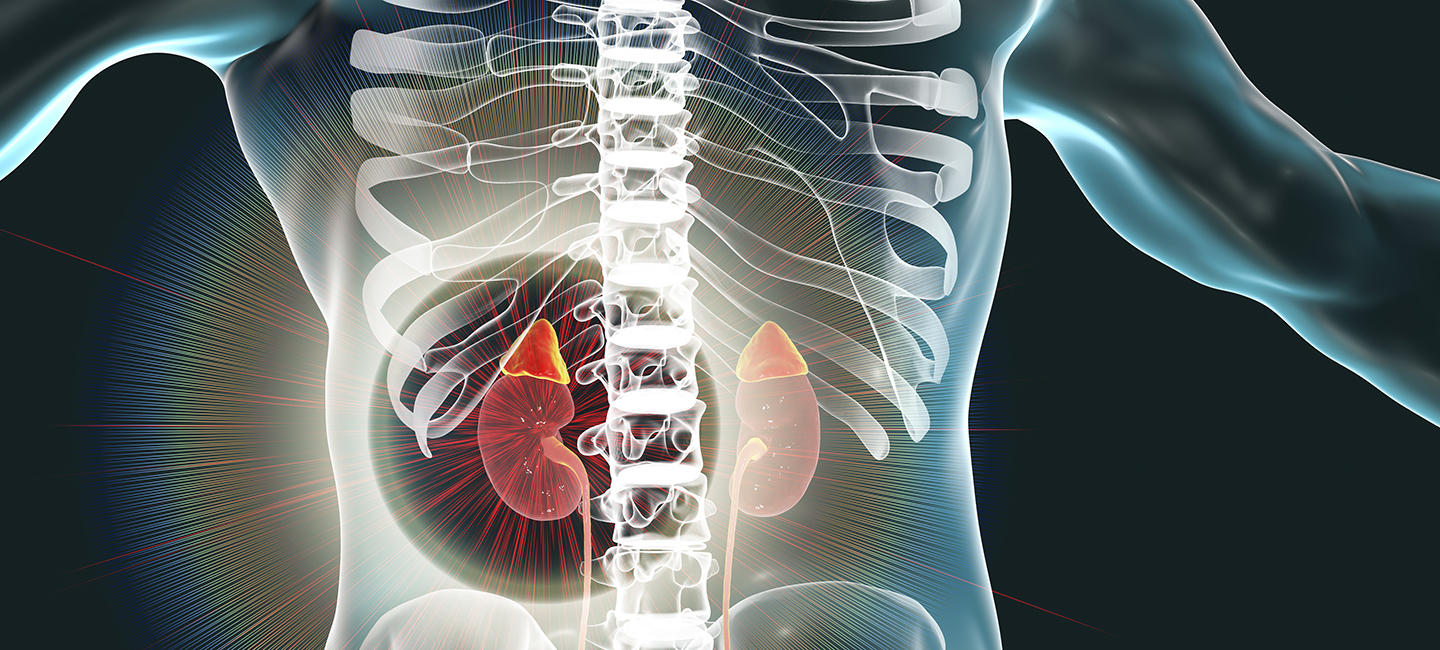Adrenal Cancer: Potential Killer Lurking Atop Kidneys
It’s a cancer most physicians may only see once or twice in their career – unless they’re part of a specialized center like Moffitt Cancer Center.
Adrenal cancer is truly a cancer in need of an awareness month, like the one declared this January in a handful of states including Florida. Few people know where their adrenal glands are located, much less what they do. They know even less about the rare and often deadly cancer our adrenal glands can harbor. Yet, approximately 500 – 600 Americans are diagnosed with adrenal cancer each year. While most commonly diagnosed in adults aged 45- 50, adrenal cancer can also strike children. It can be cured surgically if detected early. But if the cancer has spread beyond the gland when diagnosed, the odds of surviving five years are only 10-20%.
Each of us has two adrenal glands, one atop each kidney, and they’re all about hormone production. The triangle-shaped glands make hormones that help the body respond to stress. They also make hormones essential to regulating blood pressure, heart rate and the body’s use of protein, fat and carbohydrates. And they are involved in producing other hormones that give our bodies masculine or feminine characteristics. Cancers that form in the tissue covering these glands, called adrenal cortex cancers (ACC), can be very aggressive.
It’s possible a person could have ACC without any physical signs or symptoms. Sometimes, tumors are found through CT scans or MRIs ordered for other abdominal issues. When symptoms are present, they may include:
- A lump, feeling of pain or fullness in the abdomen, typically when the tumor has grown large enough to press on other internal organs
- High blood pressure
- High blood sugar
- Weakness
- Unexplained weight gain, especially in the cheeks and face
- Symptoms related to over- or under-production of sex-related hormones, such as menstrual irregularities, face or body hair growth in women; in men, erectile dysfunction or enlarged breasts

Dr. Julie Hallanger-Johnson, endocrinologist and leader of the Endocrine Oncology Program at Moffitt Cancer Center
Once diagnosed, patients will need an array of health care professionals to help them. Dr. Julie Hallanger-Johnson, an endocrinologist and leader of Moffitt’s Endocrine Oncology Program, says that can be a challenge to find. “Due to the rarity of this tumor, it really should be treated in specialized centers with staff familiar with adrenal cancer,” she said. “At Moffitt, we are fortunate to have expert oncologists, endocrinologists, surgeons, pathologists, radiation oncologists who work together with the patient at the center to fight this disease.”
Another challenge facing patients with ACC is the standard systemic treatment, a drug called mitotane that is derived from the banned pesticide DDT. Mitotane is the only approved drug for treatment of ACC. “It has nasty side effects that are difficult for patients and doctors to manage,” noted Hallanger-Johnson. “Since it is a rare tumor, and the treatment options can be limited, we owe it to our patients to develop a new and improved standard of care. But because this is a rare diagnosis, we don’t have the thousands of patients to enroll into clinical trials that allow progress to be rapid, such as it has been for breast cancer treatments.”
Hallanger-Johnson said that most new approaches tried for ACC haven’t worked as well or better than the current standard of care. “Therapies like insulin-like growth factor receptor inhibitors, VEGFR (vascular endothelial growth receptor) inhibitors, and even immunotherapy have shown disappointing results.”
This makes the need for collaborative group research – and funding – all the more urgent, said Hallanger-Johnson. A St. Petersburg, Florida event started in memory of a Moffitt ACC patient, Shannon’s Walk for ACC Cure, currently directs its proceeds to ACC research at Moffitt Cancer Center. At the same time, if provides a point of connection and inspiration for ACC patients, their caregivers and doctors. “Events to raise awareness are so important,” said Hallanger-Johnson. “I have patients who felt so alone when they were told that they had a one-in-a-million cancer and they come to this event and meet other patients just like them! This kind of event serves as a springboard to action. I can’t say enough for how much this event has inspired me personally to do better, to be a better physician, to work harder for these amazing patients and their beautiful families.”


